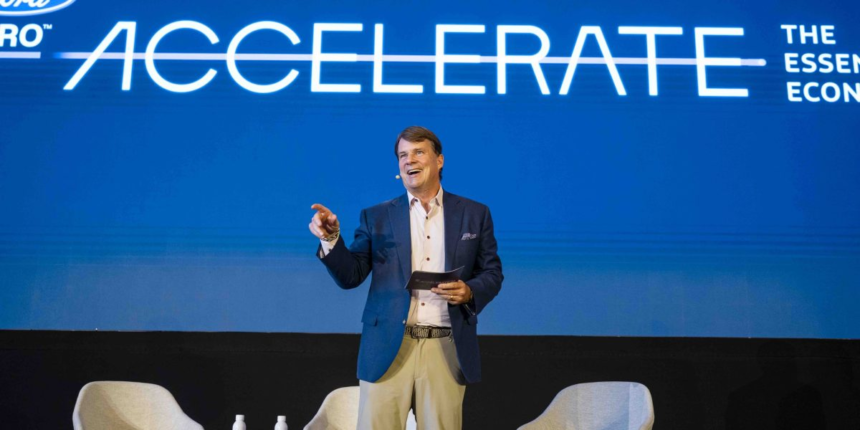In the short term, Farley said, Ford’s signature element in its new labor agreement was to get full wages to entry-level workers. But beyond that, he began looking at the labor shortage in trade work, starting with technicians. Farley described a revelation about the erosion of what blue-collar work used to represent—stability, pride, and a single income that could support a family. “Old-timers in our plants were saying, ‘It’s no longer a career, Mr. Farley. Working at Ford is no longer a career.’”
Farley’s remarks came during a star-studded event organized by the automaker, including video remarks from JPMorgan CEO Jamie Dimon and a sit-down interview with Michigan Gov. Gretchen Whitmer. Dimon called America the “bastion of freedom, arsenal of democracy,” and argued that the country had “gotten bogged down and made a lot of mistakes in how to grow our economy for the benefit of all Americans.” He urged Farley to keep fighting against what he called America becoming a “nation of compliance and box-checking.”
Farley pivoted to another theme he’s been raising: artificial intelligence, data centers, and the labor required to build this infrastructure. “We keep talking about our data centers,” he said. “We have huge construction companies here today. They will tell you this is a big issue for them.” Farley added that AI is driving huge demand for construction and warned that he doesn’t know where the labor will come from to build this infrastructure.
Farley called out declining investment in skilled trades, poor productivity, and bureaucratic hurdles as key obstacles facing the essential economy. He challenged large employers and community leaders to act, advocating for more robust apprenticeship and vocational education programs, and lamented the lack of progress at federal levels despite President Trump’s push to de-emphasize four-year degrees in favor of trade schools.
“I see a lot of momentum with mayors, county leaders,” Farley said. “They get it. But they’re in the same boat we are. They don’t have a lot of resources. They’re struggling to get these projects done.” He said there’s a general attitude of frustration, a sense of “How the hell do we fix this?”









